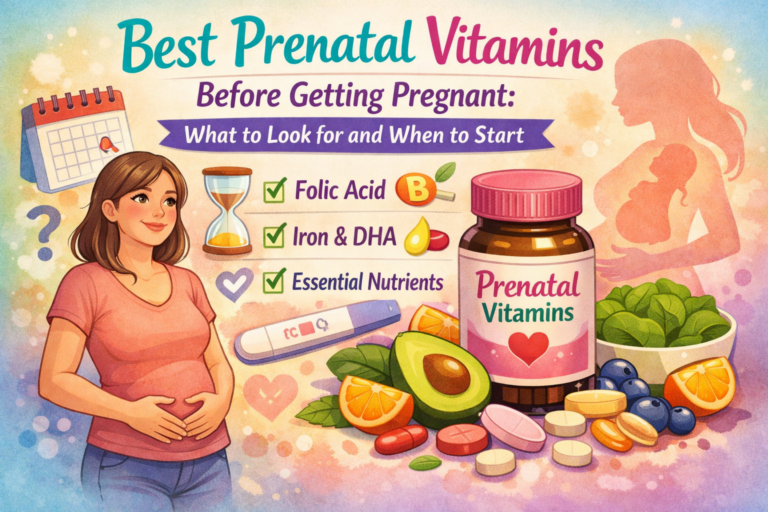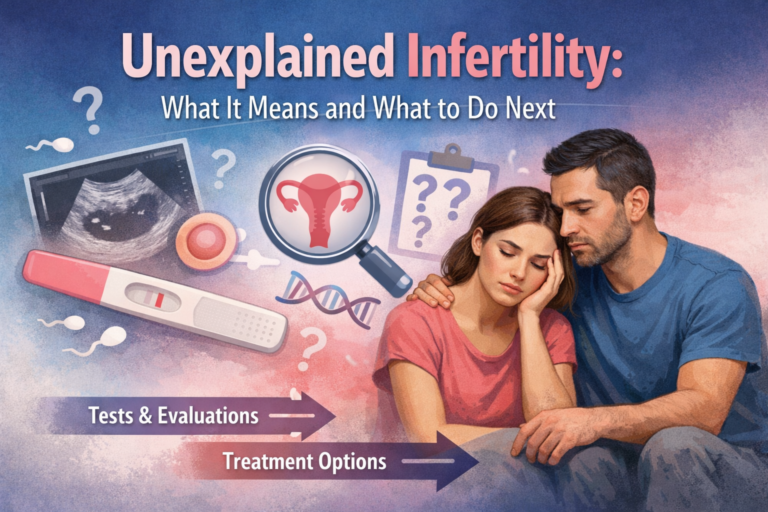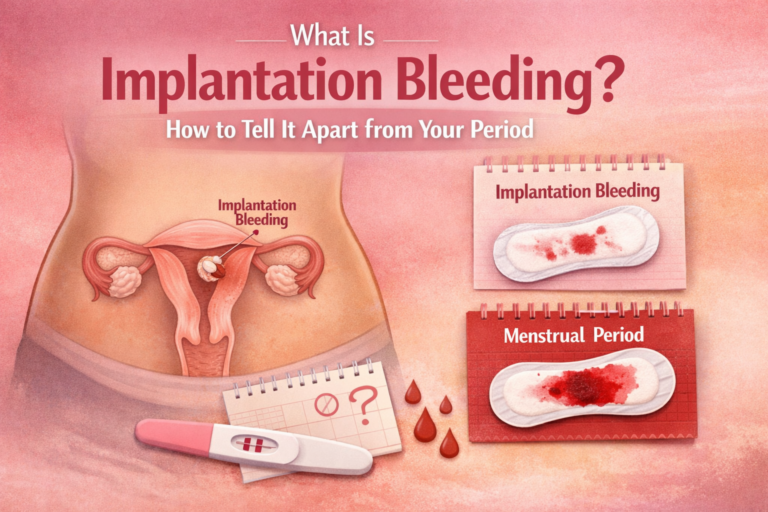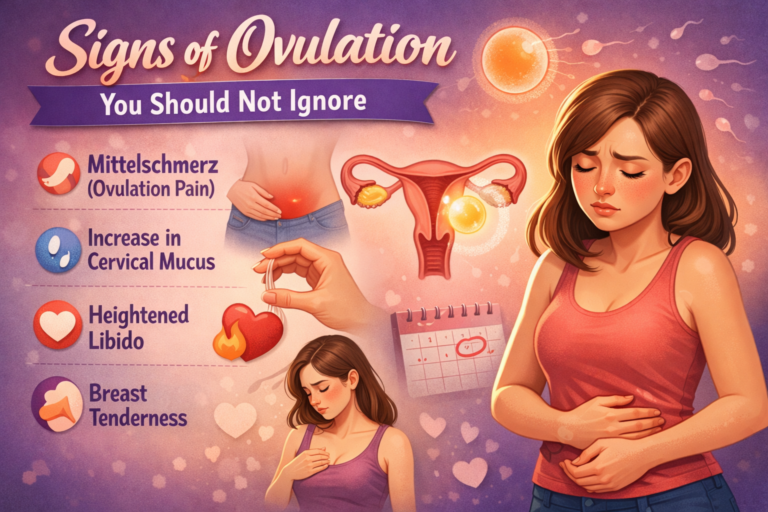
The allure of a warm bath – a chance to melt away aches and stress, letting the worries of the day simply wash down the drain. But for pregnant women, that simple pleasure can be tinged with a touch of uncertainty. With all the changes your body is experiencing, you might wonder – “Can I take a bath during pregnancy?”
The good news is, that baths can still be a part of your pregnancy routine, offering a chance to unwind. However, there are a few precautions to keep in mind to ensure a safe and relaxing soak for both you and your developing baby. In our Pregnancy Bath Guide, we’ll delve into the world of prenatal bathing, addressing safety concerns and providing tips for creating a safe and comforting bath experience.
Can I Take A Bath During Pregnancy?
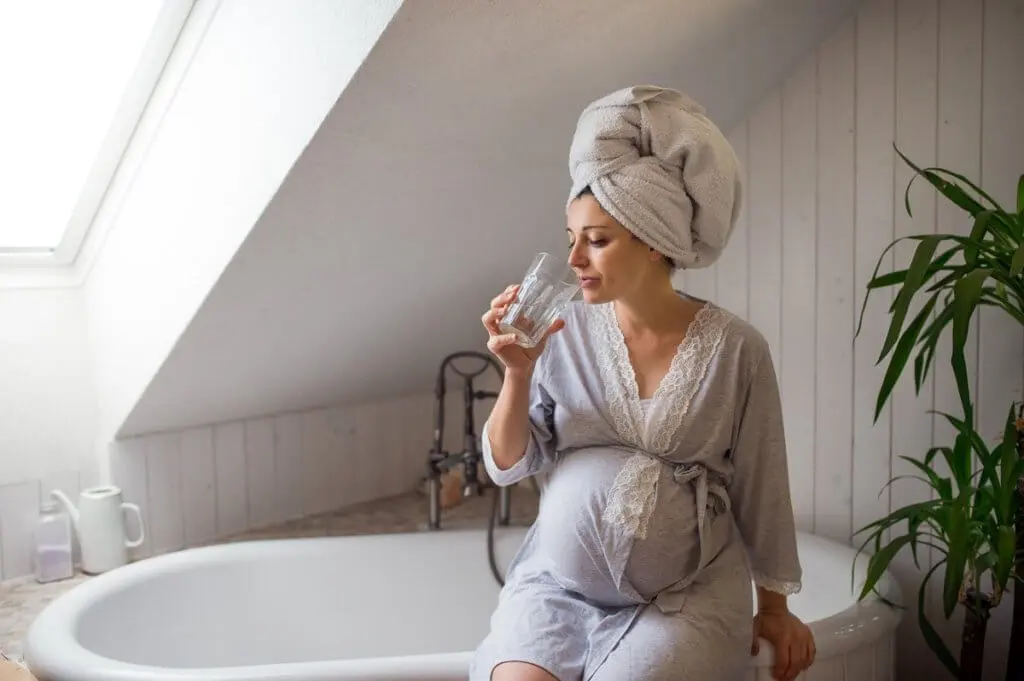
Yes, you can take a bath while being pregnant! Your body is a marvel of protection for your growing baby. Your vagina, cervix, and the amniotic sac surrounding your baby act as a natural fortress, keeping bathwater away and preventing external infections.
Bathing Across Trimesters: What to Expect
Your bathing experience may change as your pregnancy progresses, and understanding these changes helps you stay comfortable and safe.
First Trimester
During early pregnancy, your body is working overtime even if you can’t see obvious changes yet. According to the American College of Obstetricians and Gynecologists, this is when your baby is most vulnerable to temperature extremes. Keep baths warm (not hot) and limit sessions to 10-15 minutes. If you’re experiencing morning sickness, a gentle bath with cool water might provide relief.
Second Trimester
As your belly grows, getting in and out of the tub becomes trickier. This is the perfect time to install grab bars if you haven’t already. The good news? Many women find this the most comfortable time for baths, as energy returns and the belly isn’t too large yet. You can enjoy slightly longer soaks (up to 20 minutes) as long as the water stays at a safe temperature.
Third Trimester
Balance becomes more challenging as your center of gravity shifts. Always have someone nearby when bathing, and consider bath stools or seats for extra stability. Some women find that baths help relieve the increasing back pain and swelling common in late pregnancy. However, keep sessions shorter (10-15 minutes) as you may tire more easily.
Is It Safe To Take Hot Baths During Pregnancy?
While a warm bath can make you comfortable during pregnancy, you should watch out for the temperature. Dr. G. Thomas Ruiz, an OB-GYN, at MemorialCare Orange Coast Medical Center, California, advises: “I don’t recommend super hot baths“. Here’s why:
- Lightheadedness and fainting: Exposure to high temperatures during pregnancy can lead to dizziness and even fainting due to blood pressure fluctuations.
- Risk for the fetus: Hot baths may divert blood flow away from your uterus and placenta towards your skin to cool you down.
- Potential Birth Defects: Studies suggest a link between prolonged soaking in hot tubs, particularly during early pregnancy, and an increased risk of birth defects according to the American College of Obstetricians and Gynecologists (ACOG).
What Is The Safe Temperature of Pregnancy Baths?
The internal body temperature of a healthy pregnant woman is around 99°F (37.2°C). So, the ideal and safe temperature of bath water should be about 98.6 to 100°F (37 – 37.8°C). Invest in a bath thermometer to accurately measure the water temperature.
“How long can I take a bath while pregnant?” – You shouldn’t soak for over 10 minutes to not overheat or over-dry your skin.
A 2019 study reviewed the evidence and found that water baths up to 104°F (40°C) are safe and will not raise core body temperature to unsafe levels for up to 20 minutes.1
What About Hot Tubs? Is It Safe?

While a relaxing bath can be a wonderful treat, you might have heard concerns about hot tubs while pregnant. Here’s why there’s a difference:
- Temperature Control: Bathwater cools down naturally, allowing you to regulate the temperature. Hot tubs, on the other hand, constantly heat the water, potentially leading to overheating – a concern during pregnancy.
- Germ Risk: Hot tubs can harbor more bacteria due to the recycling of water. Bathtubs offer a fresher environment.
A 2011 study linked frequent hot tub use (over 30 minutes) during early pregnancy to an increased risk of birth defects (spina bifida, gastroschisis, and anencephaly)2. Therefore, for optimal safety, it’s best to forgo hot tubs and embrace the comforting warmth of a well-regulated bath during pregnancy.
What Are The Benefits of Taking Baths When I’m Pregnant
While prioritizing safety is crucial, there are several potential benefits you can experience when bathing during pregnancy:
- Relaxation Retreat: A bath can be a haven of tranquility, helping you de-stress and unwind during pregnancy.
- Pain Relief: The warmth of the water can offer soothing relief from common pregnancy discomforts like lower back pain and even hemorrhoids.
- Cooling Down: While most baths are warm or hot, a cool bath can be a refreshing option, especially if you’re feeling overheated.
Common Myths About Bathing During Pregnancy
Let’s clear up some widespread misconceptions that might be causing unnecessary worry.
Myth: Bathwater can reach the baby and cause infection.
Reality: Your baby is protected by the amniotic sac, cervical mucus plug, and closed cervix. Water cannot reach your baby through the vagina.
Myth: All hot water is dangerous throughout pregnancy.
Reality: Warm baths at the right temperature (98.6-100°F) are safe. It’s prolonged exposure to very hot water (above 102°F) that poses risks, particularly in the first trimester.
Myth: You should switch to showers only once your water breaks.
Reality: Once your water breaks, you should avoid baths to reduce infection risk. Until then, baths are perfectly safe when done correctly.
Precautions & Safety Tips for Taking Baths While Pregnant
As we said, there is no need for you to stop from bathing while pregnant. However, prioritizing safety for you and your baby requires some adjustments to your usual bath routine:
- Temperature Control: While baths are generally safe, avoid excessively hot water. Opt for warm water to prevent dizziness, fainting, and potential blood flow changes as your body regulates temperature. Consider using a bath thermometer or lowering your water heater’s maximum temperature for peace of mind.
However, you must be aware of how you should react to the temperature. Watch out for signs like feeling hot, sweating, and redness. If you start to overheat, hop out and take a cool shower (ideally below 100°F or 37.8°C) to bring your temperature down quickly.
- Slip & Fall Prevention: Pregnancy can affect your balance, so be extra cautious when entering and exiting the bathtub. Consider using a bathmat with a non-slip surface and grab bars for added stability, especially when your pregnant belly is big. Keeping your bathroom well-lit minimizes the risk of slips and falls while getting in and out of the tub.
- Minimize Bath Products: Bubble baths, bath bombs, harsh soaps, or special oils can disrupt your vaginal pH balance and lead to irritation. Opt for gentle, fragrance-free cleansers, or skip them altogether.
- Limit Bath Frequency: While occasional baths are perfectly fine, consider limiting them to a few times a week. Frequent bathing can remove beneficial bacteria in the vagina, potentially increasing the risk of irritation.
By following these simple precautions, you can continue to enjoy the relaxing benefits of a bath during pregnancy!
FAQs
Yes, you can take baths during early pregnancy. However, the first trimester is when your baby’s organs are developing, so it’s especially important to avoid water that’s too hot. Keep the temperature at 98.6-100°F and limit bath time to 10-15 minutes.
Epsom salt baths are generally considered safe during pregnancy and may help relieve muscle aches and swelling. However, always consult your healthcare provider first, especially if you have any pregnancy complications. Use warm (not hot) water and limit soaking time to 15 minutes.
Don’t panic. A single brief exposure to hot water is unlikely to harm your baby. Watch for signs of overheating (dizziness, nausea, rapid heartbeat). If you’re concerned, contact your healthcare provider for peace of mind. Moving forward, use a thermometer to monitor water temperature.
No, once your water breaks, you should avoid baths as they may increase the risk of infection. Stick to showers until after delivery. Contact your healthcare provider immediately when your water breaks.
Conclusion
Taking baths during pregnancy is not only safe when done correctly, it can be a wonderful way to relax and ease common discomforts. The key is maintaining a safe water temperature (98.6-100°F), limiting bath time, and taking precautions to prevent slips and falls. Remember, every pregnancy is unique. If you have specific concerns about bathing or any pregnancy-related questions, your healthcare provider is your best resource for personalized guidance. Enjoy those peaceful moments of self-care – you deserve them!
Sources
- Ravanelli, N. et al. (2019) Heat stress and fetal risk. environmental limits for exercise and passive heat stress during pregnancy: A systematic review with Best evidence synthesis, British Journal of Sports Medicine. Available at: https://bjsm.bmj.com/content/53/13/799 (Accessed: 26 June 2024). ↩︎
- Duong, H. T., Hashmi, S. S., Ramadhani, T., Canfield, M. A., Scheuerle, A., & Waller, D. K. (2011). Maternal use of hot tub and major structural birth defects. Birth Defects Research, 91(9), 836–841. https://doi.org/10.1002/bdra.20831 ↩︎

